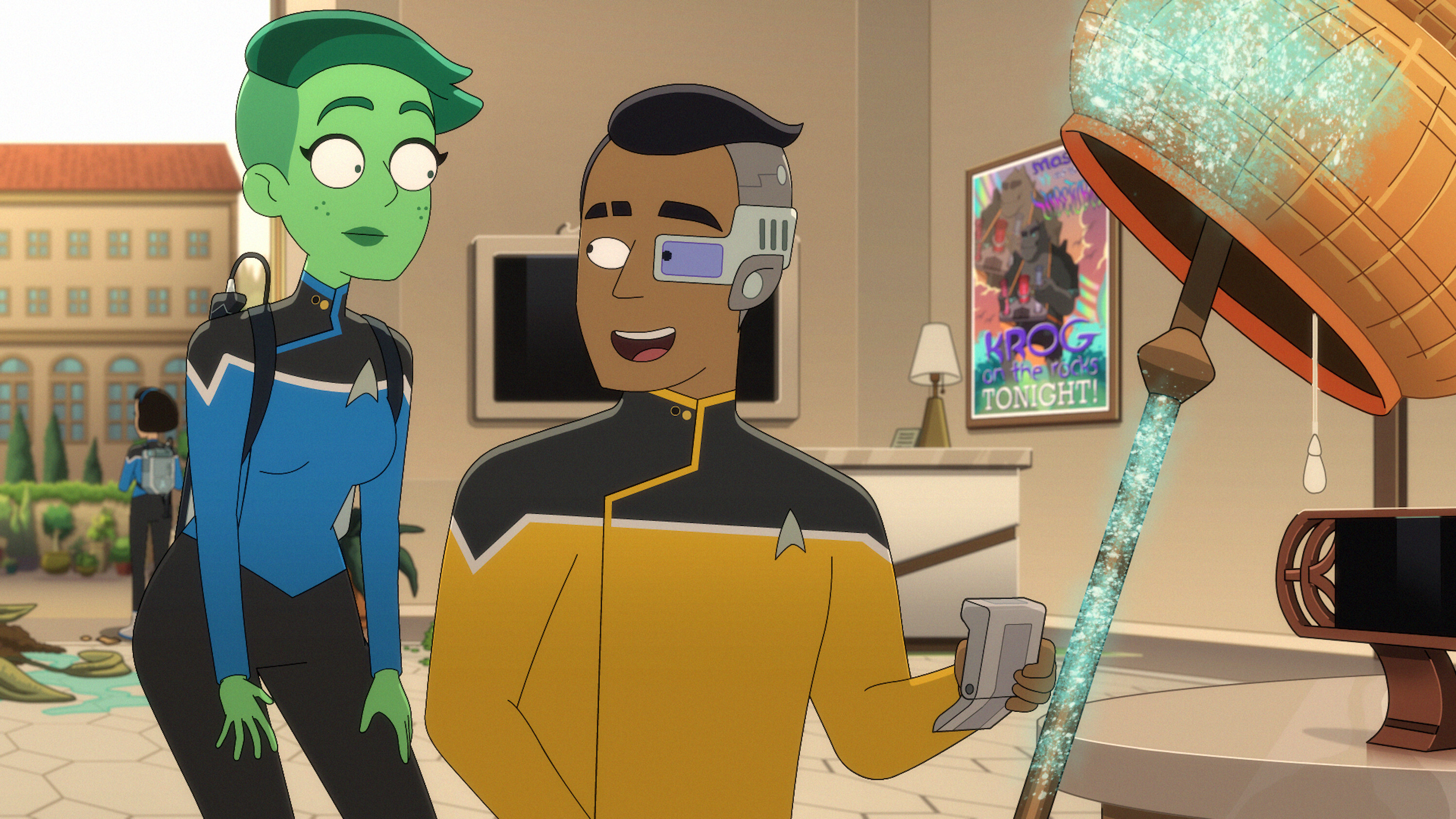
There are echoes of "Apocalypse Now" in the third episode of "Lower Decks" season 5, as Lt Bradward Boimler is recruited to track down a flag officer who's gone AWOL in a luxury space hotel — the admiral's name, Milius, is presumably a nod to John Milius, screenwriter of Francis Ford Coppola's Vietnam classic.
But the more clear and present danger in "The Best Exotic Nanite Hotel" is the swarm of nanites infesting the resort, prompting the management to call in the Cerritos crew for a spot of outer space pest control.
It's a job that — in true "Star Trek" tradition — proves much more challenging than it initially seems. And that's despite the fact that microscopic robots of similar nature have made numerous previous appearances in the franchise, whether they were evolving towards sentience or helping dodgy computers in their quest for world domination.
Here we provide a brief history of nanites in "Star Trek", and explain why this particular hospitality-tormenting sub-species follows a different program. Spoiler warning! Caution advised if you're yet to watch this week's episode.
What are nanites in "Star Trek"?
Nanites are microscopic robots which, when deployed in large numbers, can be used both in medicine and to repair/maintain computers and other technology. They are capable of replicating themselves to form bigger and bigger swarms, but tend to be susceptible to gamma radiation — handy if they ever get out of hand.
While nanotechnology is yet to reach "Star Trek" levels of sophistication in the real world, nanites have appeared in many other science fiction franchises including "Stargate", "Red Dwarf," "The Outer Limits" and "The Terminator."
Where have we seen nanites before?
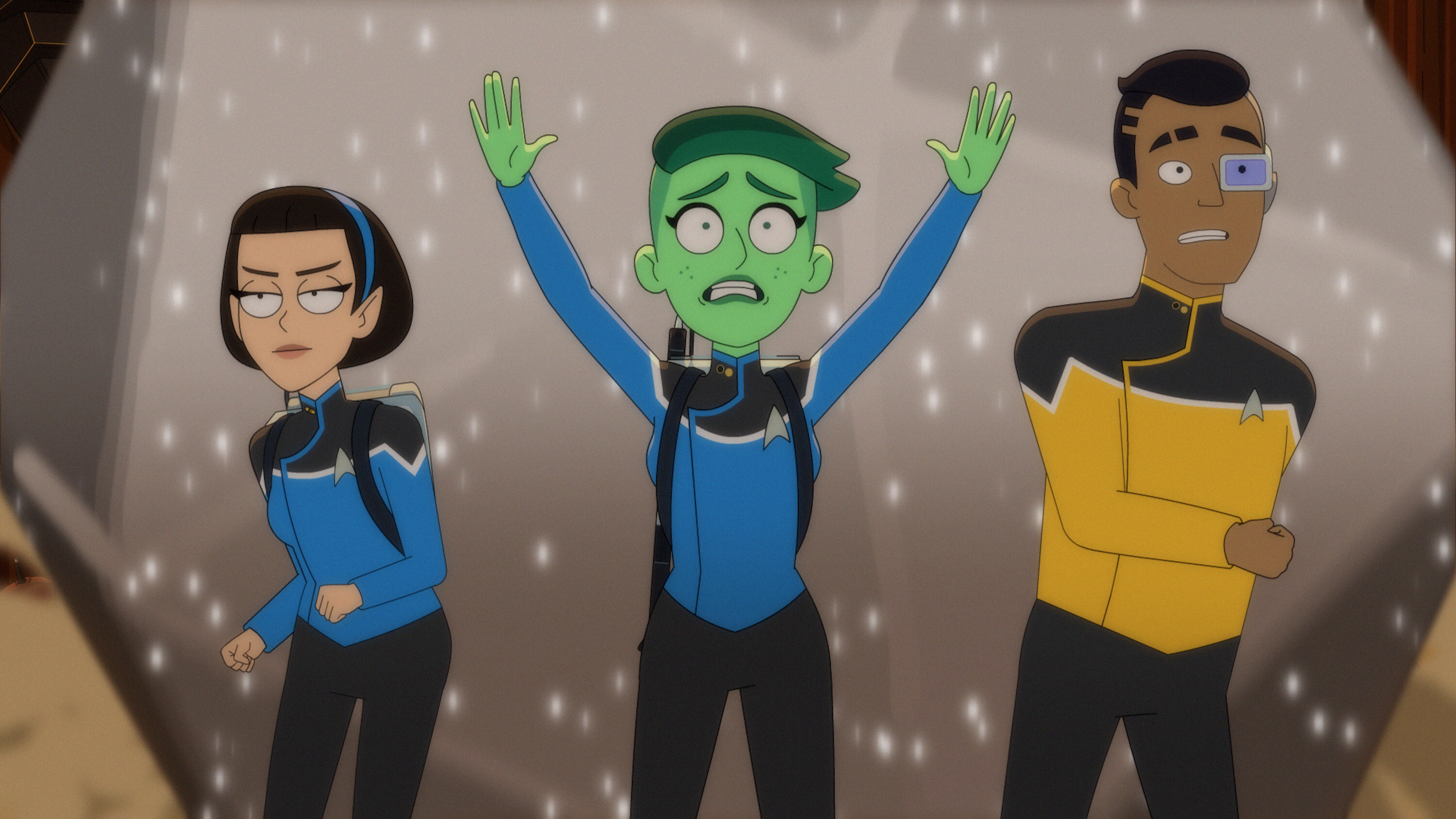
Nanites have been regular guest stars across the "Star Trek" franchise but their first significant appearance came in "The Next Generation" season 3 episode "Evolution" (1989).
In the 2360s, the USS Enterprise-D's resident teen prodigy, Acting Ensign Wesley Crusher, was carrying out nanite-based experiments when a few inadvertently found their way into the ship's computer. Replicating to form a vast colony, his micro machines managed to take control of the ship, and retaliated against various attempts to remove them by pumping poisonous gas onto the bridge.
Android officer Lt Cmdr Data stepped in as an intermediary, however, and learned that the nanites had evolved into a new sentient lifeform that just wanted to live in peace. Captain Picard gifted them a planet to call their own, Kavis Alpha IV.
Nanites were briefly mooted as a way to fight back against the Borg in classic two-parter "The Best of Both Worlds" (1990), until it was pointed out that — with the future of the Federation at stake — time was of the essence and they really didn't have a few weeks they'd need to modify them. Dr Julian Bashir and the Doctor also used nanites for medical purposes in "Deep Space Nine" and "Voyager," respectively.
But nanites' most significant "Star Trek" role to date came in the second season of "Star Trek: Discovery," set several years before the Original Series. Rogue, power-hungry AI Control used nanites to "possess" Section 31 operative Leland in its efforts to seize control of Starfleet. The threat was so grave that the USS Discovery took the drastic step of departing for the 32nd century to ensure that the troublesome operating system would never be a threat again.

If nanites have the capacity to go so spectacularly wrong, why do Starfleet keep using them?
That's one of those unanswerable mysteries of "Star Trek." It's one to file alongside, "If holodecks glitch so regularly, can they really be considered safe?" and — feeding neatly into this week's plot — "Is every holiday resort in the 24th century a potential death trap?"
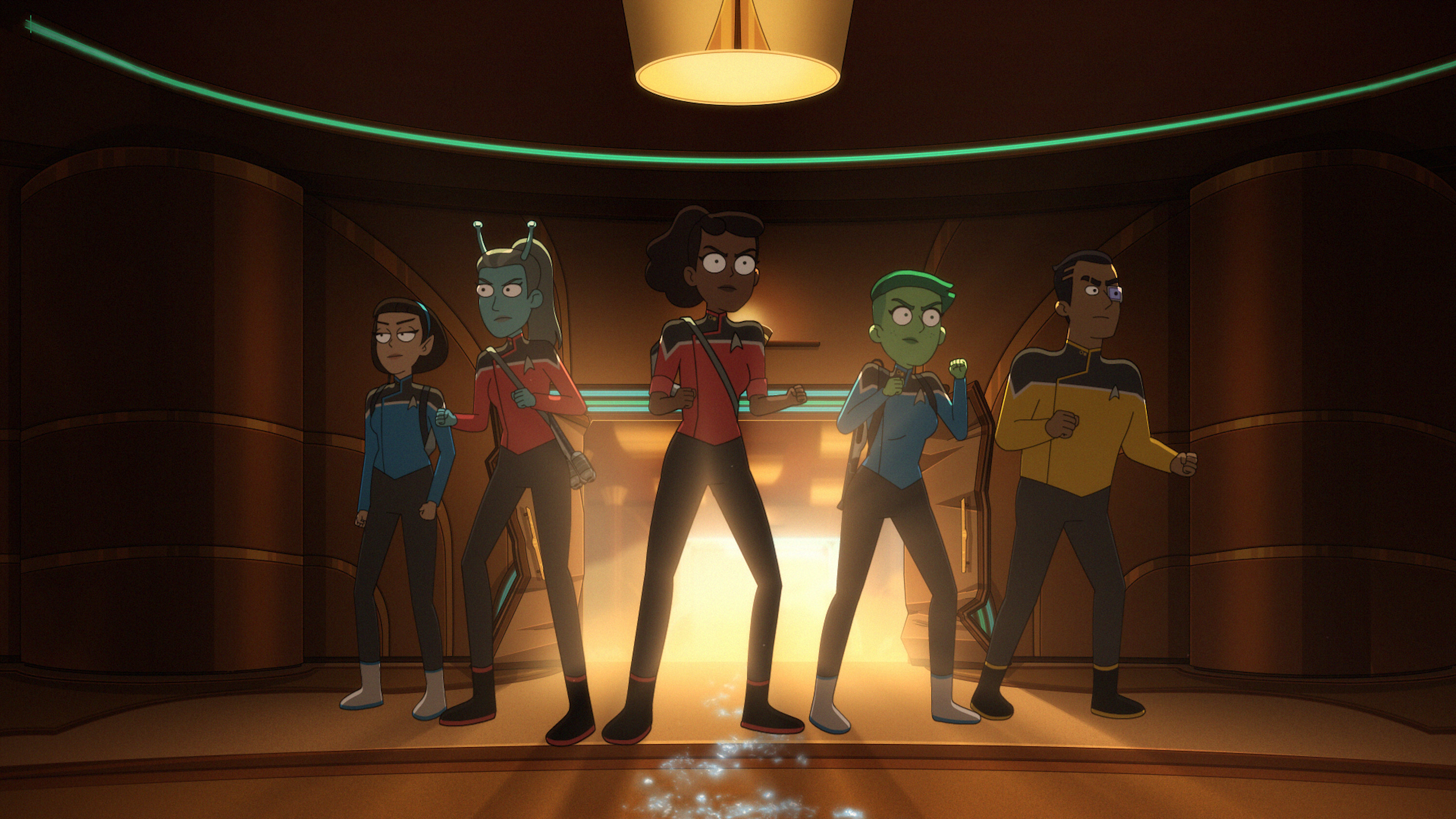
Don't the Borg use nanites, too?
Yes, the Borg use microscopic nanoprobes to initiate the assimilation process. Once injected into a new inductee's bloodstream, nanoprobes take over cells on a microscopic level. Once the target has been fully Borgified (if it's not a word it should be), the nanoprobes help maintain bodily functions, while also building cybernetic attachments for the new drone.
Borg nanoprobes were never mentioned in "The Next Generation" but the Borg could be seen injecting victims with something nasty in the 1996 movie "First Contact." The invasive tech was subsequently explained in "Voyager", and Captain Janeway and co gradually re-engineered nanoprobes to work for them as they passed through Borg space.
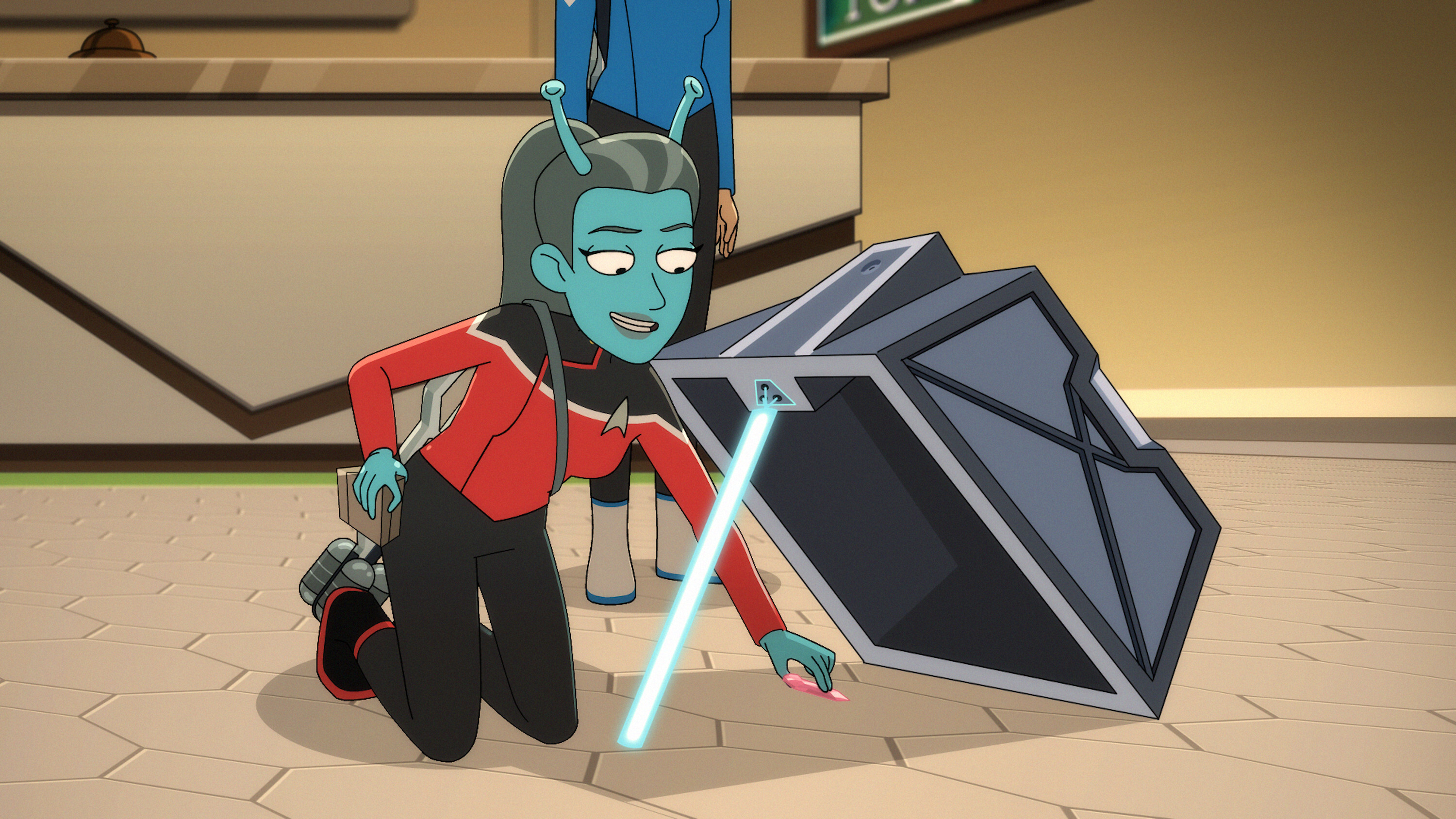
Does "The Best Exotic Nanite Hotel" mark the first appearance of nanites in "Lower Decks"?
Season 2 episode "The Spy Humongous" featured a minor incident when Bradward Boimler knocked over a jar of nanobots, allowing a load to escape captivity because chief engineer Andy Billups hadn't screwed the lid on properly. While permanently enthusiastic Orion D'Vana Tendi welcomed the opportunity to "come face to face with these tiny terrors," Beckett Mariner was less enamored, lamenting the fact that they were eating her fingerprints.
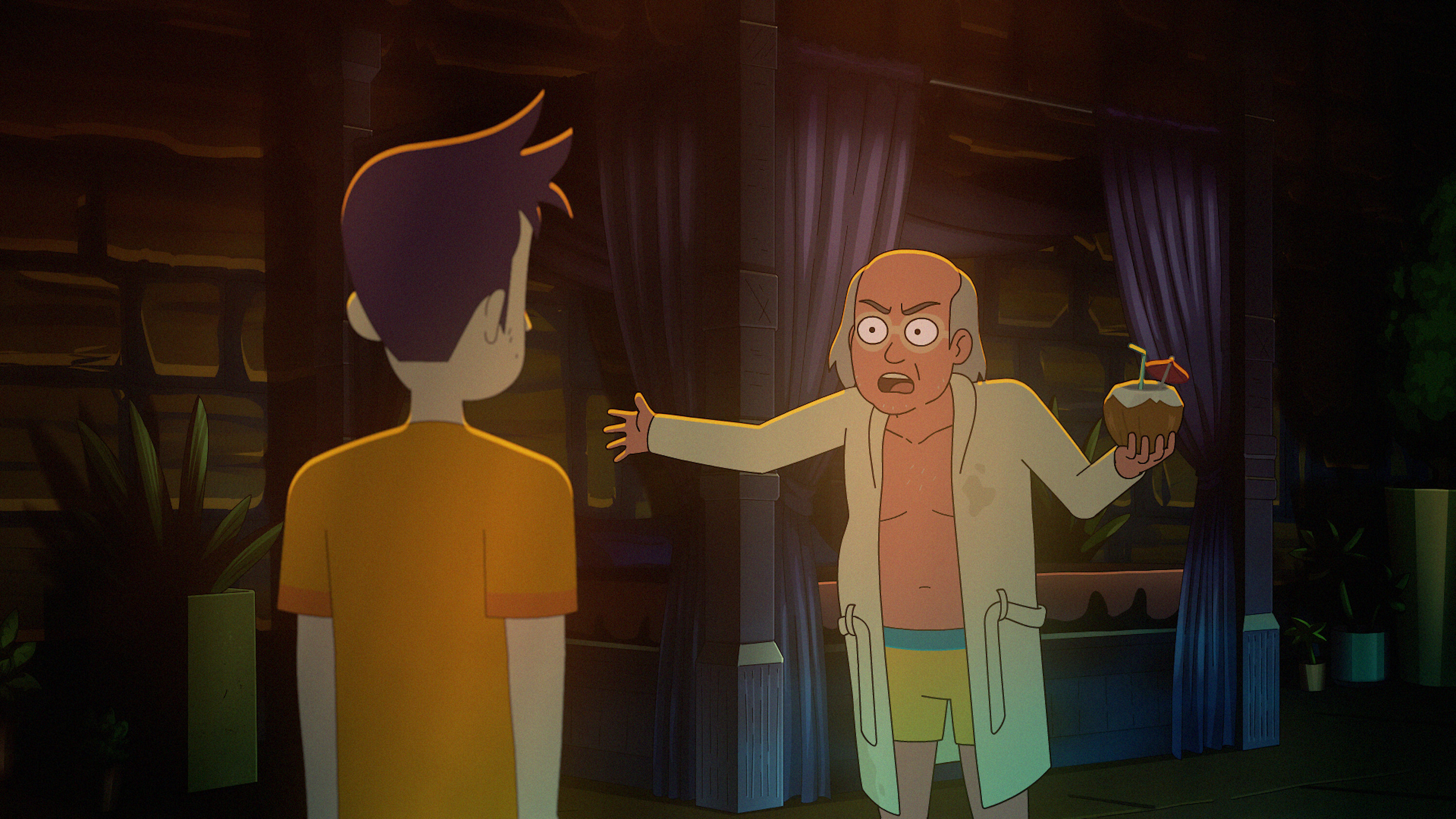
What's the deal with the nanites in "The Best Exotic Nanite Hotel"?
They're essentially pests infesting a vast cruise ship the size of the moon — what the Death Star did for planetary destruction the Cosmic Duchess does for luxury vacations. The Cerritos crew are beamed in to remove the sentient blob of nanites that Sam Rutherford has nicknamed "Glumpus." Sweet…
Unfortunately, the officers' efforts to trap the nanite swarm simply cause it to grow, until it forms a giant rolling icosahedron capable of consuming everything it touches — including Rutherford, Tendi and visiting vibe tubes legend Krog (coincidentally, T'Lyn's favourite recording artist). After a well-timed intervention from Mariner and her ex, Jennifer Sh'reyan, the Lower Deckers use Krog's vibe tubes to disrupt a mysterious signal controlling the nanites, causing the icosahedron of doom to collapse.

It turns out that the nanite collective was actually pulled together by the microscopic USS Endeavor, a Starfleet vessel from a parallel universe that exists on a much smaller scale. Glumpus was created by the crew's efforts to gather the power and materials required to create their own dimensional gate, hopefully allowing them to return to a universe where they weren't at risk of being crushed by an amoeba.
New episodes of "Star Trek: Lower Decks" season 5 debut on Paramount Plus on Thursdays.







